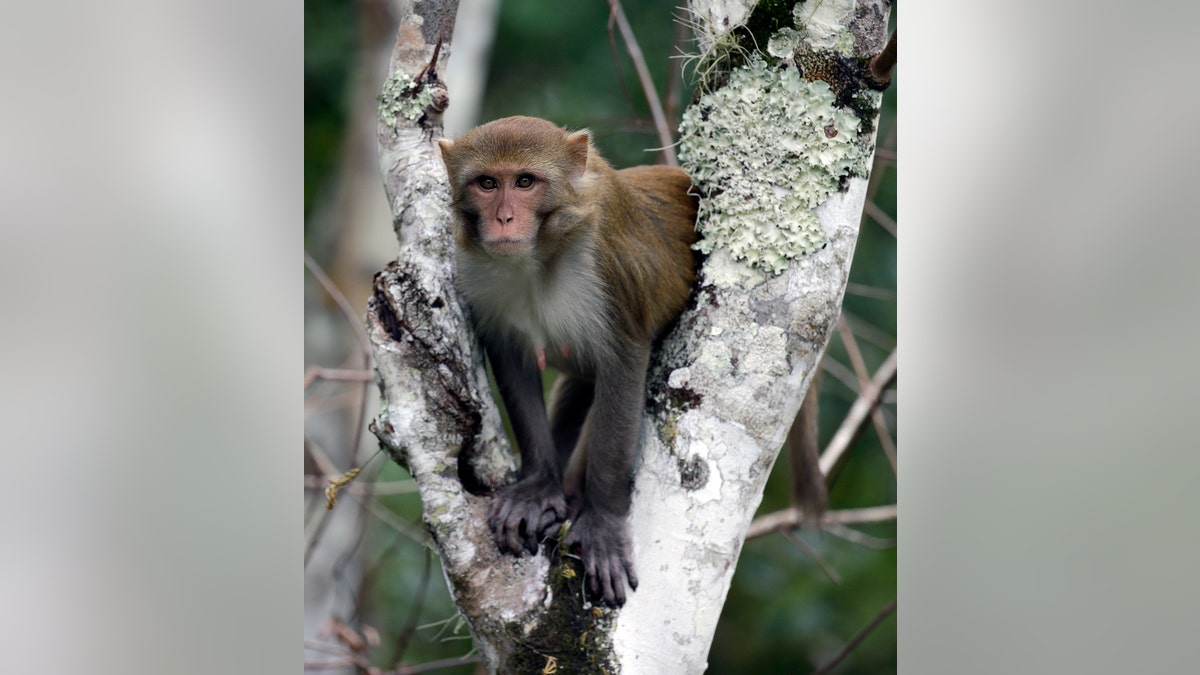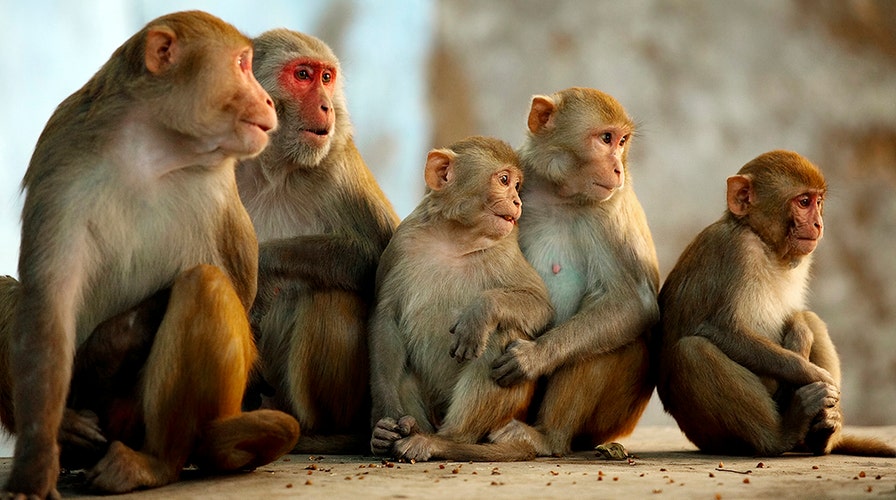Fox News Flash top headlines for April 27
Fox News Flash top headlines are here. Check out what's clicking on Foxnews.com.
Get all the latest news on coronavirus and more delivered daily to your inbox. Sign up here.
Although there is no known scientific cure for the disease known as COVID-19, researchers in China claim to have protected monkeys from getting infected, the first time this has happened with a potential vaccine.
The study, which has not been peer-reviewed and is posted on the biorxiv repository, notes that researchers from Beijing-based Sinovac Biotech gave two separate doses of their vaccine to eight rhesus macaque monkeys, with the higher dose of the vaccine performing the best.
"These antibodies potently neutralized 10 representative SARS-CoV-2 strains, indicative of a possible broader neutralizing ability against SARS-CoV-2 strains circulating worldwide," researchers wrote in the study's abstract. "Immunization with two different doses (3μg or 6 μg per dose) provided partial or complete protection in macaques against SARS-CoV-2 challenge, respectively, without any antibody-dependent enhancement of infection."

A rhesus macaques in Silver Springs, Fla. (AP Photo/John Raoux)
HEARTBURN MEDICATION BEING TESTED AS CORONAVIRUS TREATMENT IN NYC HOSPITALS
They continued: "Systematic evaluation of PiCoVacc via monitoring clinical signs, hematological and biochemical index, and histophathological analysis in macaques suggests that it is safe. These data support the rapid clinical development of SARS-CoV-2 vaccines for humans."
According to Science Mag, which first reported the news, the vaccine is comprised of a "chemically inactivated version of the virus." The news outlet also noted that human trials started on April 16.
The researchers found that after seven days, there was no presence of the virus in the pharynx, crissum and lungs of the monkeys in the group with the highest dosage.
There are concerns about the study, notably the small number of monkeys tested, which University of Pittsburgh researcher Douglas Reed told Science Mag was too small to be statistically significant.
CLINICAL TRIAL OF POTENTIAL CORONAVIRUS TREATMENT HYDROXYCHLOROQUINE BEGINS, NIH SAYS
The researchers also acknowledged that "although it’s still too early to define the best animal model for studying SARS-CoV-2 infections, rhesus macaques that mimic COVID-19-like symptoms after SARS-CoV-2 infection appear quite promising animal models for studying the disease."
CLICK HERE FOR COMPLETE CORONAVIRUS COVERAGE
As of Monday morning, nearly 3 million coronavirus cases have been diagnosed worldwide, more than 965,000 of which are in the U.S., the most impacted country on the planet.









































